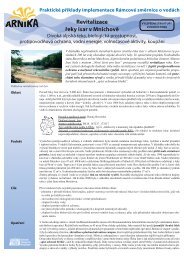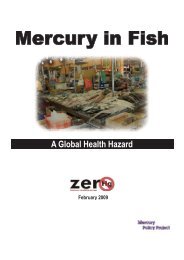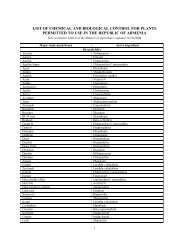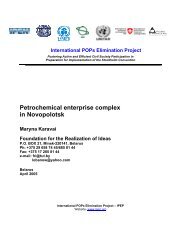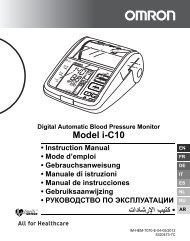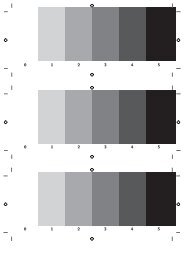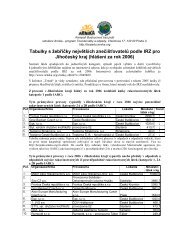Market analysis of some mercury-containing products and their ...
Market analysis of some mercury-containing products and their ...
Market analysis of some mercury-containing products and their ...
Create successful ePaper yourself
Turn your PDF publications into a flip-book with our unique Google optimized e-Paper software.
mometers (65%); a fair segment <strong>of</strong> the doctors <strong>and</strong> hospitals had both devices in <strong>their</strong><br />
inventories (30%). Exclusive use <strong>of</strong> <strong>mercury</strong>-free thermometers was very limited (5%).<br />
Health care pr<strong>of</strong>essionals indicated <strong>mercury</strong>-free thermometers’ positive attributes.<br />
Most doctors were quick to point out the positive qualities <strong>of</strong> <strong>mercury</strong> free thermometers,<br />
consistently citing <strong>their</strong> resistance to breakage. Some doctors (25%) with<br />
exposure to both alternatives preferred working with the <strong>mercury</strong>-free alternatives.<br />
Variable impressions were given on the ability to read with <strong>some</strong> br<strong>and</strong>s getting higher<br />
marks while other electronic readouts were found to be more difficult to read than even<br />
a glass thermometer’s linear scale.<br />
Health care pr<strong>of</strong>essionals also indicated <strong>mercury</strong>-free thermometer problems.<br />
Regarding personal preference, three concerns were mentioned most <strong>of</strong>ten – accuracy,<br />
reliability <strong>and</strong> to a lesser degree readability. The most frequent responses referenced<br />
short-comings <strong>of</strong> <strong>mercury</strong>-free thermometers as a lack <strong>of</strong> accuracy <strong>and</strong>/or inconsistent<br />
readings.<br />
Costs for <strong>mercury</strong>-free thermometers were not considered a barrier. Doctors<br />
stated that cost issues related to <strong>mercury</strong>-free <strong>products</strong> was less <strong>of</strong> a concern than the<br />
accuracy <strong>and</strong> reliability issues. Responses indicated that prices ranged from 2.6 - 8.6<br />
times greater for purchasing <strong>mercury</strong>-free thermometers, but were not felt to be a barrier.<br />
Health pr<strong>of</strong>essionals indicated hospitals required use <strong>of</strong> <strong>mercury</strong> thermometers.<br />
Doctors indicated little choice in the equipment used when working outside <strong>of</strong> <strong>their</strong> own<br />
private practice. When serving as an attending physician at a hospital or clinic they<br />
were limited to the equipment on-h<strong>and</strong> <strong>and</strong> had little influence over purchasing decisions.<br />
Health pr<strong>of</strong>essionals understood the risk posed by <strong>mercury</strong> exposure. All doctors<br />
(100%) understood the hazards <strong>of</strong> <strong>mercury</strong> <strong>and</strong> the majority expressed a desire to see<br />
a shift to <strong>mercury</strong>-free devices.<br />
34



